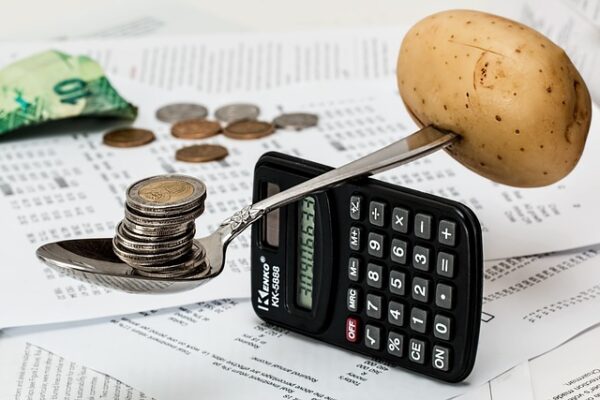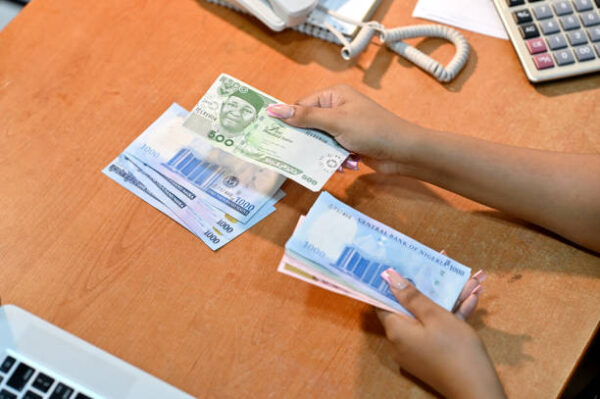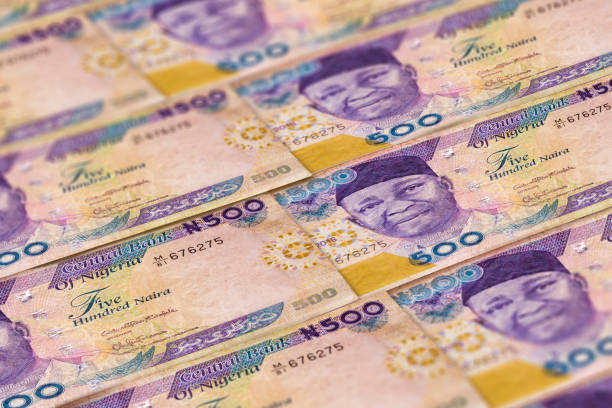The largest economy in Africa is contending with currency turmoil and a significant rise in inflation

Nigeria is currently grappling with one of its most severe economic crises in years, marked by annual inflation approaching 30% and a rapid decline in its currency value. This situation has sparked widespread outrage and protests across the nation.
On Monday, the Nigerian naira reached a new historic low against the U.S. dollar in both the official and parallel foreign exchange markets. It plummeted to nearly 1,600 naira against the dollar on the official market, a significant drop from around 900 naira at the beginning of the year.
President Bola Tinubu revealed on Tuesday that the federal government aims to raise a minimum of $10 billion to enhance foreign exchange liquidity and stabilize the naira, as reported by various local media outlets.
Since assuming office in May 2023, President Tinubu has been confronted with a challenging economic landscape, inheriting an economy in distress. He pledged to implement a series of reforms to address the situation and restore stability, but the currency has depreciated by approximately 70% during his tenure.
To address the struggling economy and draw international investment, President Tinubu took steps to streamline Nigeria’s disparate exchange rates, allowing market dynamics to determine the exchange rate. However, this move led to a sharp decline in the value of the currency. Additionally, in January, adjustments were made to how the currency’s closing rate is calculated by the market regulator, resulting in yet another de facto devaluation.
The prolonged implementation of foreign exchange controls has contributed to a significant backlog of demand for U.S. dollars, particularly amid reduced overseas investment and declining crude oil exports. This accumulated demand has further exacerbated the challenges faced by Nigeria’s currency, adding pressure to an already strained economic situation.
President Tinubu’s initiatives aimed at unifying exchange rates and introducing market-driven mechanisms were intended to address longstanding issues and revitalize Nigeria’s economy. However, the resulting currency depreciation and ongoing demand for U.S. dollars underscore the complex challenges and delicate balance required in navigating the country’s economic landscape.

According to Pieter Scribante, a senior political economist at Oxford Economics, the devalued exchange rate is expected to escalate imported inflation, compounding the already mounting price pressures in Nigeria. This concern arises from the country’s heavy reliance on imports to fulfill the needs of its rapidly expanding population, despite being Africa’s largest economy with over 210 million people.
Scribante cautioned that the ongoing trend of shrinking disposable incomes and deteriorating cost-of-living challenges is likely to persist throughout 2024. These factors are anticipated to further constrain consumer spending and impede growth in the private sector.
Furthermore, inflationary pressures continue to surge, with the headline consumer price index registering a year-on-year increase of 29.9% in January, marking its highest level since 1996. This upward trajectory in inflation is primarily driven by a persistent uptick in food prices, which surged by 35.4% last month compared to the previous year.
Given the current economic conditions, the outlook for Nigeria remains challenging, with heightened concerns over the affordability of essential goods and services. The significant depreciation of the exchange rate and the resulting surge in imported inflation are poised to exacerbate the financial strain on households and businesses alike.
In response to these economic challenges, policymakers and stakeholders will need to implement effective measures to mitigate the adverse effects on the population and support sustainable economic recovery. This may involve targeted interventions to alleviate the burden of rising prices and bolster consumer confidence, while also fostering a conducive environment for private sector investment and growth.
Despite the daunting challenges ahead, concerted efforts to address the root causes of inflation and strengthen the resilience of the economy could pave the way for a more stable and prosperous future for Nigeria.
Over the weekend, widespread protests erupted across the country in response to the escalating cost of living and growing economic hardships. The sharp decline in the value of the currency has exacerbated the adverse effects of government initiatives, including the removal of gas subsidies, resulting in a threefold increase in gas prices.
President Tinubu announced in late July that the government had managed to save over 1 trillion naira ($666.4 million) through the elimination of subsidies on gas. These funds are earmarked for redirection into infrastructure investment, reflecting the administration’s efforts to reallocate resources toward priority areas for national development.
As the government grapples with mounting public discontent and economic instability, there is growing pressure to implement measures that can alleviate the burden on the populace and address the root causes of the ongoing crisis. Balancing the need for fiscal reforms with the imperative of ensuring social welfare and economic stability remains a daunting challenge for policymakers.
In addition to grappling with surging inflation and a sharp depreciation of its currency, Nigeria is confronting unprecedented levels of government debt, elevated unemployment rates, electricity shortages, and dwindling oil production, which serves as its primary export. These economic challenges are further compounded by widespread violence and insecurity in rural regions.
Pieter Scribante, from Oxford Economics, emphasized that the economy faces various threats, including excess market liquidity, exchange rate volatility, and shortages of essential commodities such as food and fuel. These factors pose significant risks to price stability, with inflation potentially spiraling beyond the government’s control.

Scribante warned of the potential for robust import demand exacerbating existing economic strains, prompting the Central Bank of Nigeria (CBN) to consider reinstating import bans and foreign exchange (FX) restrictions to alleviate pressure on the balance of payments. However, such measures could exacerbate domestic shortages of goods and further fuel inflationary pressures.
According to Oxford Economics, inflation is forecasted to reach a peak of nearly 33% year-on-year in the second quarter of 2024, with the possibility of remaining elevated for an extended period due to numerous economic uncertainties.
“Moreover, the escalating inflationary pressures coupled with the Central Bank of Nigeria’s (CBN) increasingly hawkish stance suggest that a policy rate hike could be on the horizon,” noted Scribante. Currently, the policy rate stands at 18.75%.
“We anticipate a cumulative increase of 200 basis points (bps) in interest rates over the upcoming Monetary Policy Committee (MPC) meetings, scheduled for late February and late March this year. However, we believe that further rate hikes will be necessary to curb the mounting inflation,” Scribante emphasized.
Meanwhile, Jason Tuvey, deputy chief emerging markets economist at Capital Economics, anticipates the CBN opting for a more substantial interest rate adjustment when policymakers convene on February 26 and 27.
“The upcoming meeting will serve as a crucial gauge of whether the policy adjustments initiated under President Tinubu are indeed gaining traction,” Tuvey remarked in a note issued on Thursday.
“We anticipate that the Monetary Policy Committee (MPC) will endeavor to reinforce its stance on combating inflation by implementing a significant interest rate hike of 400 basis points, bringing it to 22.75%,” he added.
